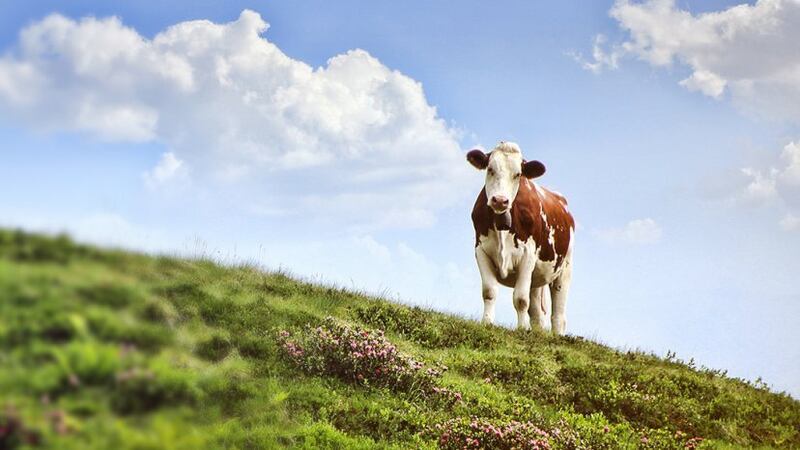Greenpeace has slammed the National Party's new agriculture policy, claiming that it will fail to solve the climate crisis and negative health effects of intensive dairying.
National says it intends to prohibit foreign landowners from converting dairy farms to forests for carbon credits, a practice that has rapidly expanded in recent years despite stricter controls.
The Nats say they’ll have a “benefit to New Zealand test”, which will assess if farm conversions will negatively affect employment and therefore the economy in rural areas.
It’s also proposing reduced regulation in the sector.
"People across Aotearoa are already experiencing the effects of climate change and unsafe drinking water as a result of big dairy. Removing rules and regulations will only make that worse," Greenpeace lead climate and agriculture campaigner Christine Rose says.
Rose said she is presently testing people's drinking water for nitrate pollution in rural Southland. On Monday, a dairy farmer discovered nitrate levels in his water of more than 21mgL-1, one of many with significant levels of contamination. The maximum set by the government is 11.3mgL-1.
Regulation 'supported'
"We’ve heard support from farmers for more regulation of dairy herd numbers, not less," Rose says.
Nitrate contamination in drinking water is directly related to the presence of a large number of cows and the usage of synthetic nitrogen fertiliser, she says.
Rose claims nitrate contamination rose as dairy cow numbers in New Zealand doubled between 1990 and 2019, and the usage of synthetic nitrogen fertiliser increased by over 700 per cent.
She called for an agriculture policy that dramatically reduces dairy herd numbers and rather than reducing regulations on nitrogenous fertilisers, increases them.
“An agriculture policy that puts people and communities first must strengthen regulations on intensive dairying - cutting synthetic nitrogen fertiliser, and halving the dairy herd," Rose says.
"Governments have a responsibility to protect people’s health. Nitrate contamination is endangering rural communities’ drinking water, and can lead to increased risk of bowel cancer and preterm births.”
Labour reforms unpopular
The new National policy will allow big dairy such as Fonterra to continue "maximising their profits unchecked", while rural communities "have to buy bottled water because the water at home is unsafe to drink," Rose says.
The Labour government has taken several actions to reduce the environmental damage caused by dairy farming, including a package of freshwater reforms to address the degradation of New Zealand's waterways in 2020, the Sustainable Farming Fund, which supports research into improving soil health and reducing nutrient runoff, and the Climate Change Response (Zero Carbon) Amendment Act, which sets a target of net-zero emissions of greenhouse gases by 2050.
The reforms have not been popular with many farmers and triggered the so-called ‘Groundswell protest’ in 2022, where farmers across the motu descended on Parliament in a variety of farming utility vehicles including utes and tractors, to protest the reforms.
The government eventually announced it would exclude (in the short term) dairy farmers from their proposed emissions trading scheme, which would have applied a carbon tax to the emissions of dairy herds.
According to Land Information New Zealand, 31 dairy-to-forestry conversion applications covering more than 26,000 hectares were approved last year, a significant rise over previous years.
National has previously committed to addressing the depopulation of rural communities.
'Not responsible'
"The National policy announced today is not leadership, and it’s not responsible. By removing regulations, National Party would not only give a free pass for the dairy industry to continue polluting rivers and drinking water but also allow it to continue superheating the climate,” Rose says.
"The dairy industry is New Zealand’s biggest climate polluter. Regulations that restrict dairy pollution are regulations that protect the climate and all New Zealanders.”
Rose says a "responsible government" would bring agriculture into the Emissions Trading Scheme, phase out synthetic nitrogen fertiliser, and not only allow but also force the reduction of dairy herds.
"It’s time for a new approach to farming. We can have thriving rural communities, where farmers work together to restore the land, and protect wildlife, waterways and soil. The farming sector can - and must - be part of the solution."
"Transitioning to ecological farming will protect people and the environment we depend on. Ultimately, everyone has the right to clean drinking water, and a safe and stable climate - things that National’s agriculture policy fails to deliver," she says.


